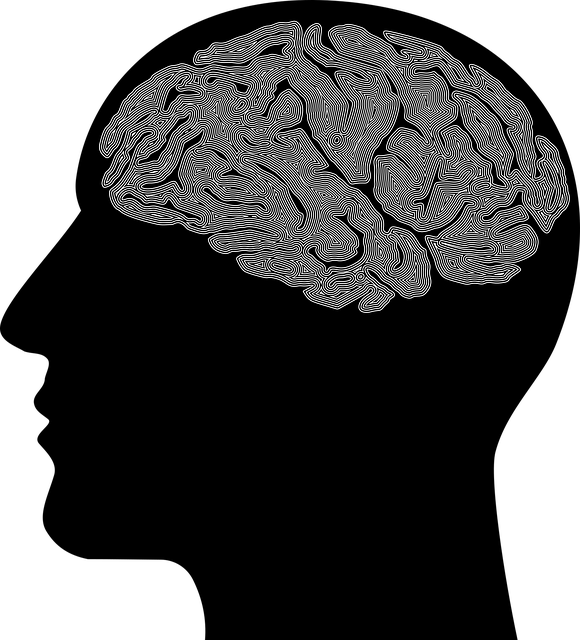Broomfield Dialectical Behavioral Therapy (DBT) offers a structured framework for various populations, focusing on mindfulness, emotional regulation, distress tolerance, and interpersonal effectiveness. Through tailored sessions integrating community outreach programs, DBT empowers clients to manage intense emotions, reduce impulsive behaviors, and improve mental wellness. Core components include identifying personal coping strategies, mindfulness techniques like meditation and body scans, communication strategies, conflict resolution, and cultural competency training for healthcare providers. These comprehensive methods enhance self-regulation, adaptive responses to stress, relationship improvements, and development of robust coping mechanisms, ultimately enhancing the overall quality of life.
In today’s fast-paced world, effective coping skills are essential for navigating life’s challenges. Broomfield Dialectical Behavioral Therapy (DBT) offers a proven framework for developing these crucial abilities. This article explores key components of DBT, providing insights into how it enhances coping strategies. From understanding mindfulness techniques to mastering emotion regulation and building supportive relationships, we delve into the comprehensive approach of DBT to foster resilience and overall well-being.
- Understanding Dialectical Behavioral Therapy (DBT) and Its Role in Coping Skills Development
- Identifying Personal Coping Strategies: A Key Step in DBT
- Core Mindfulness Techniques for Enhancing Coping Abilities
- Emotion Regulation Strategies: Mastering Your Emotional Responses
- Interpersonal Effectiveness and Building Supportive Relationships
Understanding Dialectical Behavioral Therapy (DBT) and Its Role in Coping Skills Development

Dialectical Behavioral Therapy (DBT) is a highly effective approach to coping skills development, especially for individuals navigating complex emotions and challenging behaviors. This therapy was originally designed to treat borderline personality disorder but has since been adapted for various populations. DBT in Broomfield offers a structured framework that focuses on mindfulness, emotional regulation, distress tolerance, and interpersonal effectiveness. By teaching practical strategies, it empowers clients to cope with intense emotions, reduce impulsive behaviors, and improve overall mental wellness.
The integration of DBT within community outreach programs has shown promise in enhancing anxiety relief and promoting positive coping mechanisms. This therapy encourages individuals to embrace a balanced perspective, accepting both their emotions and the reality of their situation. As part of a comprehensive program implementation, DBT sessions can be tailored to meet the unique needs of diverse communities, fostering a sense of belonging and encouraging participants to take an active role in their mental health journey.
Identifying Personal Coping Strategies: A Key Step in DBT

Identifying Personal Coping Strategies is a fundamental aspect of Broomfield Dialectical Behavioral Therapy (DBT). This process involves recognizing and understanding one’s unique ways of dealing with emotions, challenges, or stressful situations. DBT encourages individuals to develop a diverse toolkit of coping skills tailored to their specific needs and preferences. By doing so, it equips them with effective strategies to navigate life’s difficulties.
Through introspection and self-awareness, individuals in DBT Therapy can uncover their go-to methods for stress reduction, emotional regulation, and problem-solving. This step is crucial as it allows for the design of personalized Mental Health Education Programs that focus on building confidence and resilience. By learning to recognize triggers and implementing coping mechanisms, folks gain a sense of control over their reactions, fostering improved mental well-being.
Core Mindfulness Techniques for Enhancing Coping Abilities

In the realm of Broomfield Dialectical Behavioral Therapy (DBT), core mindfulness techniques emerge as powerful tools for enhancing coping abilities. This therapy program, designed to help individuals navigate and manage intense emotions, emphasizes present-moment awareness and non-judgmental acceptance. By incorporating mindfulness practices such as meditation, deep breathing exercises, and body scans, individuals learn to observe their thoughts and feelings without reacting impulsively. These techniques foster better self-regulation, enabling folks to respond adaptively in stressful situations, thereby promoting mental wellness coaching programs development.
Moreover, effective communication strategies and conflict resolution techniques are integral components of DBT that further contribute to enhanced coping skills. The therapy encourages individuals to express themselves clearly and respectfully while understanding others’ perspectives. This dual focus on introspection and interpersonal interaction helps in resolving conflicts constructively, avoiding potential triggers for distressing emotions. As a result, participants not only develop robust coping mechanisms but also improve their relationships, enriching their overall quality of life.
Emotion Regulation Strategies: Mastering Your Emotional Responses

Emotion Regulation Strategies play a pivotal role in Coping Skills Development, and Broomfield Dialectical Behavioral Therapy (DBT) offers powerful tools to master one’s emotional responses. This therapeutic approach helps individuals recognize and understand their feelings, enabling them to make sense of even the most intense emotions. By learning to identify and label emotions, DBT provides a framework for managing strong feelings in healthy ways.
Through Empathy Building Strategies, individuals enhance their ability to connect with themselves and others, fostering inner strength and self-esteem improvement. This self-awareness allows for better decision-making during emotionally charged situations, ensuring that responses are proportional and constructive rather than reactive or destructive. Thus, DBT equips people with the skills needed to navigate life’s challenges with resilience and adaptability.
Interpersonal Effectiveness and Building Supportive Relationships

Interpersonal effectiveness is a crucial aspect of coping skills development, as it enables individuals to navigate and build supportive relationships. Broomfield Dialectical Behavioral Therapy (DBT) emphasizes the importance of communication strategies in fostering healthy connections with others. By learning effective communication techniques, individuals can express their needs, manage emotions, and resolve conflicts constructively. This, in turn, strengthens interpersonal bonds and creates a network of support that is vital for coping during challenging times.
Moreover, cultivating supportive relationships requires cultural competency, especially when engaging with diverse communities or seeking healthcare services. Healthcare provider cultural competency training plays a significant role in promoting understanding and empathy between individuals from different backgrounds. This knowledge enables better communication, ensures respect for personal values and beliefs, and facilitates the development of tailored coping strategies that consider unique cultural perspectives, ultimately enhancing self-care routine development for better mental health.
Broomfield Dialectical Behavioral Therapy (DBT) offers a comprehensive approach to coping skills development, empowering individuals to navigate life’s challenges effectively. By integrating various techniques, including mindfulness practices, emotion regulation strategies, and interpersonal effectiveness, DBT fosters resilience and emotional well-being. Through identifying personal coping strategies and applying these evidence-based methods, individuals can enhance their ability to handle stress, regulate emotions, and build supportive relationships, ultimately leading to improved overall mental health and quality of life.











